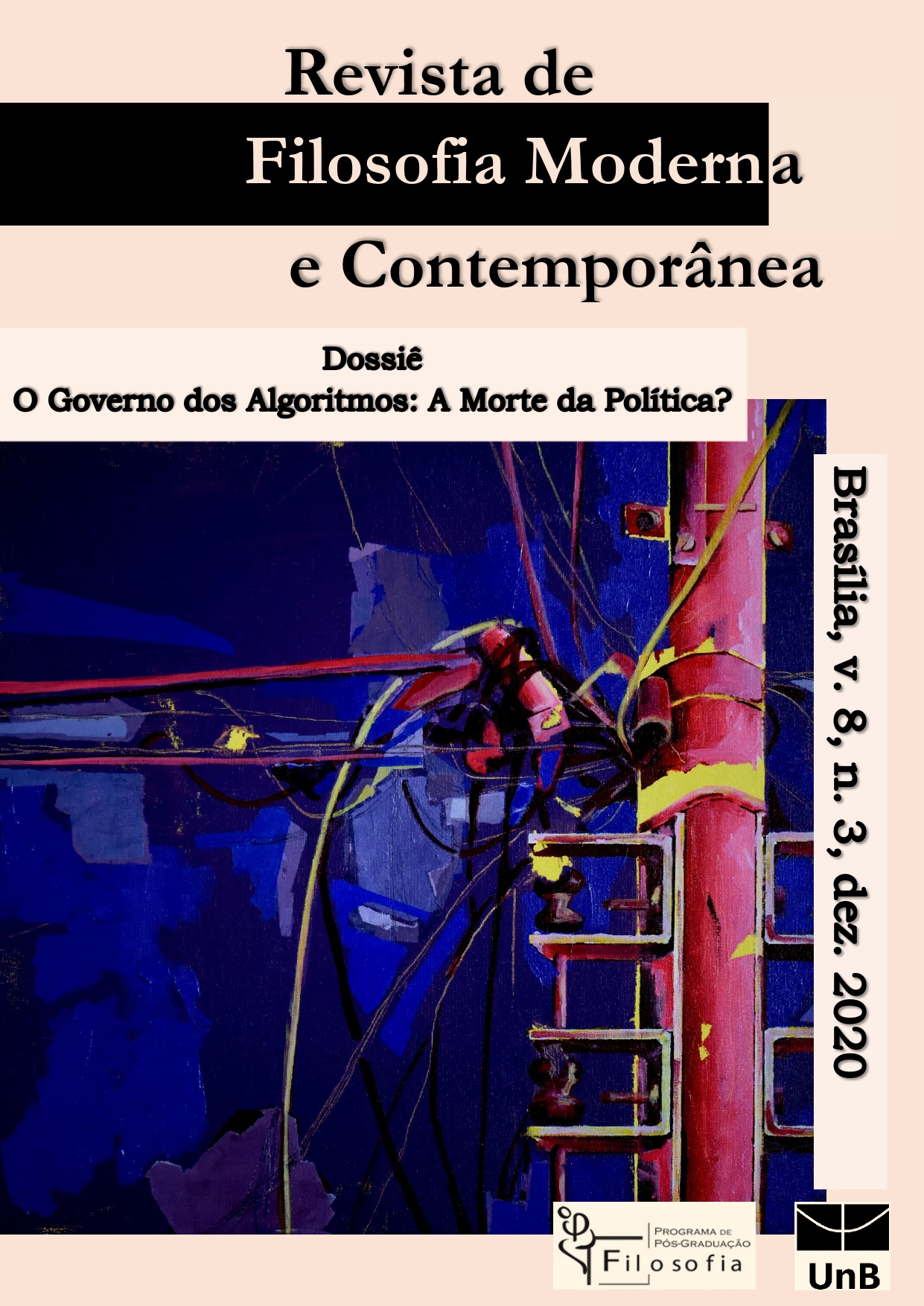Making Revolt Impossible
DOI:
https://doi.org/10.26512/rfmc.v8i3.36260Keywords:
Normativity. Disobedience. Algorithmic Governmentality.Abstract
In this article, originally published in France (Rendre la révolte impossible, Rue Descartes, 2013/1, n. 77, pp. 121-128), Thomas Berns reflects on a new kind of normativity, which departs from the legal-discursive model and subverts a fundamental aspect of what we traditionally understand by norm: the possibility of disobedience. The author seeks to discern, in contemporary normativities, a new relationship with reality, a claim to govern the reality. Unlike the legal norm, which expresses an act of will that seeks to govern the reality, such normativities are conceived as immanent to the real, allowing government practices to become more insidious, almost imperceptible, as we see in “algorithmic governmentality”. The translation of this article into Portuguese seeks to contribute to the dissemination, in Brazil, of this important debate on politics and the law in contemporary times.
Downloads
References
BERNS, T. « Not individuals, Relations: What Transparency is really about. A theory of algorithmic Governmentality », Transparency, Society, Subjectivity ”“ Critical Perspectives, ed. Springer, 2018.
BERNS, T. Gouverner sans gouverner. Une archéologie politique de la statistique, PUF, 2009.
BERNS, T. ; ROUVROY, A. « Gouvernementalité algorithmique et perspectives d’émancipation. Le disparate comme condition d’émancipation par la relation ? », Réseaux, 2013/1, n° 177, La Découverte, p. 163-196; [tradução para o português publicada na Revista Eco Pós, vol. 18, n. 2, 2015, p. 35-56, https://revistas.ufrj.br/index.php/eco_pos/article/view/2662]
BERNS, T.; JEANMART, G. « Le rapport comme réponse de l’entreprise responsable : promesse ou aveu (Ã partir d’Austin et Foucault) », Dissensus, 3, 2010, pp. 117-137, http://popups.ulg.ac.be/dissensus/document.php?id=701).
BERNS, T.; JEANMART, G. « Reporting / Confession », in Multitudes, n° 36, 2009.
FOUCAULT, M. Sécurité, territoire, population. Cours au Collège de France, 1977-1978, Seuil / Gallimard, 2004, leçon du 18 janvier 1978, p. 8 ou 21-22 [tradução para o português de Eduardo Brandão publicada em São Paulo, Martins Fontes, 2008, aula de 18 de janeiro de 1978].
FULLER, L. The morality of Law, Yale Univ. Press, 1969.
Downloads
Published
How to Cite
Issue
Section
License
Copyright (c) 2021 Journal of Modern and Contemporary Philosophy

This work is licensed under a Creative Commons Attribution-NonCommercial-NoDerivatives 4.0 International License.
Copyright for articles published in this journal is retained by the authors, with first publication rights granted to the journal. By virtue of their appearance in this open access journal, articles are free to use, with proper attribution, in educational and other non-commercial settings.


